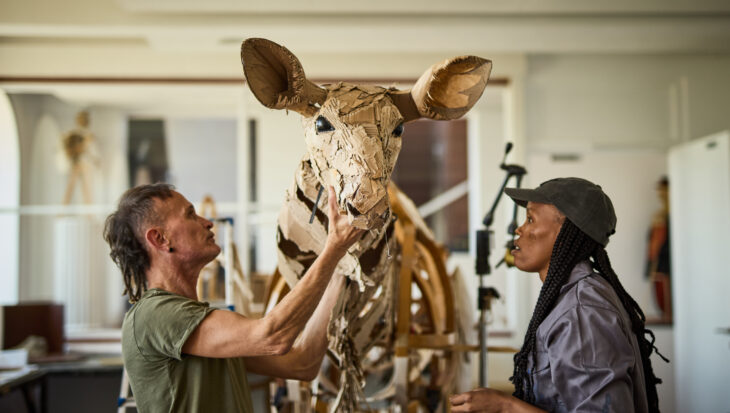‘The Herds’ will be arriving in London this Friday!
Have you heard? A breathtaking arts initiative, ‘The Herds’ will be arriving in London this Friday.
Posted 27 Jun 2025

Posted on the 7th February 2014
Nearly four years ago, the government pledged to deliver a plan for reducing the number of animals used in experiments. Specifically, it said it would ‘end the testing of household products on animals and work to reduce the use of animals in scientific research’. Since that time, there has been a significant increase in the total number of animals used and no progress on the ban on household product testing.
Finally, three government departments (the Home Office, the Department for Business, Innovation and Skills and the Department of Health) today published their ‘delivery plan’ for reduction. Shockingly, not only is the emphasis on justifying animal use and promoting the ‘UK’s world class research base… in life sciences,’ but it explicitly states that the objective is not actually to reduce ‘baseline numbers’. Rather, the goal is to improve the ways in which animals are used.
The delivery document merges neatly with a current public relations push by commercial and academic users of animals. Called the Concordat on Openness, the initiative, which is solidly backed by government, was triggered by recent public polling that showed growing resistance to animal use and a high level of scepticism about the regulatory process. The Concordat aspires to openness in its rhetoric but is, in reality, an attempt to control the news agenda. A recent example is the flattering television item that resulted from an invitation by Oxford University to the BBC to visit its animal laboratory.
As one of its action points, today’s (7 February) delivery document cites ‘promoting an understanding and awareness about the use of animals where no alternatives exist’. Towards this end, it repeatedly emphasises the deeply flawed assumption that animal research is capable of bringing benefits to humans, and contains an entire section on what it calls ‘the continuing need to use animals in research’. Such a view is completely out of step with modern scientific understanding, and fails to take account of the fundamental interspecies differences that prevent the results of animal experiments from being reliably applied to humans.
Also deeply disturbing is the government’s assumption that smaller animals are less capable of suffering. The document suggests that using mice and fish, who are of ‘perceived lower sentience’, are acceptable alternatives to using other species. Clearly, such assumptions are based less on scientific evidence than on predictions about where the greatest public sympathy will lie. Animal Aid’s landmark report, Science Corrupted, underlines the nightmarish suffering of genetically modified (GM) mice, who are bred to suffer torments, such as seizures and internal bleeding. Depressingly, the document predicts more GM animals will be used in the future.
The government sees the National Centre for the Replacement, Refinement and Reduction of Animals in Research (NC3Rs) as a key player in its ‘reduction strategy’, but, unsurprisingly, the NC3Rs works on the assumption that animal research is valid and has a strong focus on ‘refinement’ rather than replacement.
The provision of funding for research into non-animal methods is clearly inadequate. The document itself admits that this is ‘a very small proportion of the overall funding it provides to the Research Councils which also fund animal experiments’.
There is now an urgent need for a genuinely independent review into the scientific efficacy of animal research. Such a review, we believe, would demonstrate the dangerous unreliability of the animal model and the necessity of directing substantial funds into the development and application of non-animal research methods.
Have you heard? A breathtaking arts initiative, ‘The Herds’ will be arriving in London this Friday.
Posted 27 Jun 2025

As the greyhound racing industry releases its annual data on the number of dogs’ deaths, a raft of well-known names - alongside their canine friends - has called upon the Government to end greyhound racing....
Posted 26 Jun 2025
